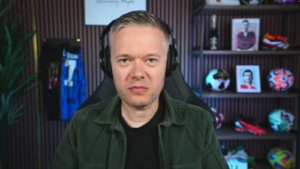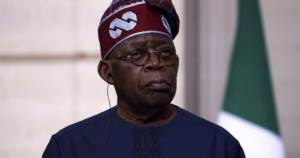Artificial intelligence (AI) is expected to significantly boost the sales of secondhand clothing, as per the CEO of one of the largest online resale platforms. In the past year, global sales of secondhand clothing increased 15%, outpacing the broader market, and a further 11% growth is anticipated this year thanks to advancements in technology, such as AI-powered search tools that improve shopping experiences.
As a result of the increased demand for pre-loved garments, online resellers have been able to chip away at the market share of major clothing retailers. Presently, secondhand clothing represents $227 billion or 9% of the total fashion sales, marking a substantial rise over the past five years.
The sales increase is partly driven by cash-strapped shoppers in the US looking for affordable alternatives to new clothing, especially if prices rise due to tariffs on goods made in China. James Reinhart, CEO of ThredUp, stated that the market will have a “break-out year” compared to previous years, without being heavily impacted by tariffs and that value-seeking behavior will increase among consumers.
AI technology will enhance the shopping experience by enabling customers to create individual outfits, find secondhand items based on photos, such as celebrity outfits, and providing cheaper options than those in shops.
The data also indicates that more consumers are open to purchasing secondhand clothing than ever before, with 58% of respondents having made such purchases in the previous year, up from 52% in 2023. This trend is especially popular among young people, with 68% having bought secondhand clothing last year, aided by the growth of specialized websites like Vinted, Depop, ThredUp, and eBay.
Despite this growth, Reinhart admitted that sales of secondhand fashions have not fully reached their predicted targets – falling short of achieving 10% of the global fashion market – largely due to the increased popularity of fast-fashion retailers like Shein and Temu, which offer budget-friendly options to consumers.
Despite ThredUp experiencing only a 1% increase in sales to $260 million last year and incurring a $40 million loss, Reinhart remains optimistic. Depop, a UK-based rival, saw a 31% increase in sales to £71.3 million in 2023, with its losses narrowing to £48.6 million. Meanwhile, Vinted reported a 61% surge in sales to nearly €600 million (£513 million), marking the first time the company turned a profit.
Overall, advancements in AI and changing consumer attitudes towards sustainability and affordability will continue to drive the growth of the secondhand clothing market.
Source: https://www.theguardian.com/business/2025/mar/19/ai-and-us-tariffs-expected-to-fuel-fresh-surge-in-secondhand-fashion-sales







